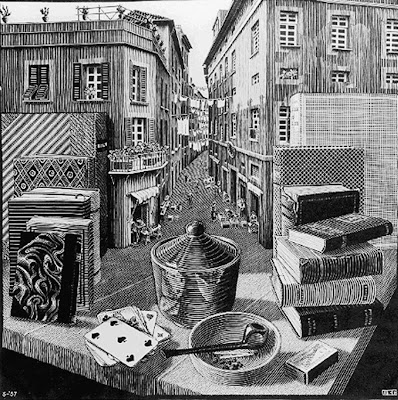
The first time I encountered Kenneth Rexroth, I was very impressed. It is typically assumed that if someone knows too much about practically everything, they may be dismissed as a "polyhistor". At the other end of the spectrum, the compliment Renaissance Man may be glibly and liberally awarded where it is not deserved. I may not be literate enough to judge surely where Rexroth fits between these two bookends, but all I can say is that my instincts, intuition and intellect felt richly nourished by his breadth of knowledge, and by his uncanny ability to summarize classics in beautiful and scintillating capsules, almost resembling miniature works of art in themselves.
Classics Revisited, published between the years of 1965 and 1968, contains chapters on most of the works most people at least have heard of. He begins with the Epic of Gilgamesh, followed by Homer, Beowulf, the Book of Job, the Mahabharata, Sappho's poems, Aeschylus, and on through the bedrocks of Graeco-Roman works. He doesn't stop there, examining Medieval Latin lyrics, and then classic Japanese poetry (it is evident that not only is he fluent in ancient Greek and Latin, but also in Japanese); then returning Westward again to delve into Chaucer, Shakespeare, Dante, et al., then inexorably Modernwards as he sails past Rabelais, Marco Polo, Thomas More, Machiavelli, Cervantes, Ben Jonson, John Bunyan, and more I have left unmentioned.
If this may sound like he's left out many other great names, never fear -- there's always his companion volume to make up for it, More classics revisited.
One of my favorite essays from the latter is his curiously apposite perspective on the Sherlock Holmes oeuvre of Arthur Conan Doyle, in which he not only finds a slice of Victorian history come alive in mythic imagination, but adds his own dashes of wry and astute spice:
The plots are by no manner of means models of the ratiocinative detective story. Even Poe does better. Conan Doyle's favorite stories, "The Speckled Band" and "The Hound of the Baskervilles," are not merely implausible, they are impossible...
. . .
There are no better records of the profoundly normal oddity of Victorian England and early twentieth-century France, nor more humane ones, than the detective tales of Conan Doyle and Simenon. And they are possessions like unto pearls of great price, for alas, we will never be as odd again.
No comments:
Post a Comment